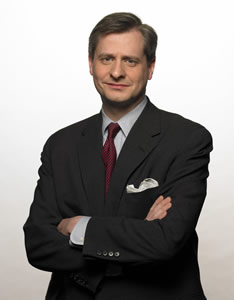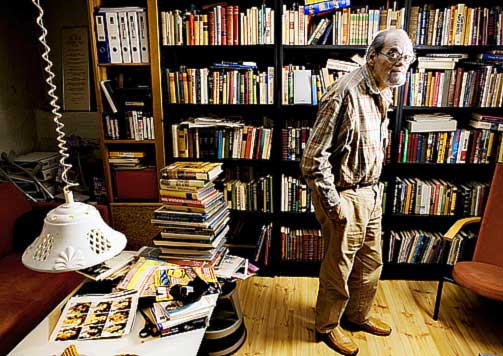Before taking this class, I would have easily defined the word “journalist.” Now, looking back over all the material we covered, I’m not so sure of myself anymore. It’s apparent that the term “journalist” has become an ambiguous title with new media. Is a blogger a journalist? Am I a journalist? In the syllabus for our class, Dr. Cressman writes,
“During this semester we will have the opportunity to together explore, discuss, analyze, and define the practice of journalism.”I feel confident that I have explored, discussed, and analyzed the practice of journalism—perhaps to the point of incredulity—but have I defined it? Rather than give a one sentence, dictionary-like definition, I can better say what a journalist is and isn’t. A journalist is not only defined by what they do, but how they do it.
Many organizations have published guidelines that they think journalists should abide by. One such publication that I respect is Reuter’s “Handbook of Journalism.” Reuter’s says a journalist is not defined by how they report, but by their ethical values:
“There are many different types of journalism practised in Reuters, across text, television, picture services and online. No one definition of our craft applies to them all. What must unite us is honesty and integrity.”According to Reuter’s, there are ten absolutes of journalism, some of which include being accurate and never fabricating or plagiarizing. This definition of journalism eliminates a few members of the media: rumor-dependent tabloid reporters, for one. If we determine who is a journalist based on the Reuters definition, then it is clear a journalist is defined by their ethical values. There are four ethical rules nearly all news organizations seem to agree on. They are: eliminating conflicts of interest, reporting with transparency, accuracy, and truth.
A journalist is someone who reports for a living. Because of this, they must remain loyal to their audience and eliminate any conflicts of interest within their personal life. National Public Radio created their own "News Code of Ethics and Practices." They clearly state that anything a journalist does in their personal life has the potential to conflict with their role as a reporter. NPR says,
"All of us are in positions of trust with our audience. To maintain that trust requires that there be no real or perceived overlap between the private interests and opinions of NPR journalists and their professional responsibilities."By simply attending a political rally or tweeting their opinions, a journalist can give readers an excuse to question the transparency of their reporting. A journalist represents their news organization and should live up to that responsibility. It is also their responsibility to remain loyal to the citizens. A reporter's power should not be abused with conflicted interest between loyalty. They are employed by a news organization, but they work for the people. Because of this it is also their duty to remain transparent.
A journalist should report facts without spin or intended bias. This rule of transparency could be the most difficult for a reporter to follow. Michael Grunwald, an environmental reporter for the Washington Post, says, "I've tried to let the facts speak for themselves." This solution allows reporters to fulfill their duty and lets the public create their own opinions. However, it only works if journalists report the truth.
Truthfulness and honesty are at the heart of journalism. This requires journalists to verify their facts to ensure accuracy. Bill Mitchell of the Poynter Institute believes that the tools of verification are more readily available today than ever before. Journalists can access each other's work more easily, and they can keep each other in check as well as their own audience can. These tools of verification are available through new media--the new frontier of journalism.
New media is changing journalism as we know it. The Church of Jesus Christ of Latter-day Saints acknowledges this in their statement “Journalism Integrity and the Compartmentalization of Ethics." Within this statement we read, "News organizations across the country are doing their best to adapt to changes as they develop. Nonetheless, these dynamics have not altered the fundamental ethical imperatives of journalism." The Fourth Estate must always stand for these traditional journalistic values. The definition of a reporter or journalist may change, but their ethical values are eternal. In order to become the most credible of journalists, it is important that I abide by both the fundamental ethical values of journalism, and my own personal code of conduct. In addition to the ethical rules stated, I have a set of personal values I follow as a journalist. This includes: stand as a watchdog, stay comprehensive and proportional, and be appropriately involved with the community.
Today the press is regarded as the Fourth Estate; reporters must keep people of power in check. It is my responsibility to act as a watchdog for the public. Many people rely on news to find out what goes on in their community. Not everyone has time to do research on their local leaders or government. Because of this, the responsibility falls on journalists. Poynter Online did a survey where they asked journalists to give meaning to the term "watchdog journalism." The results were a variety of responses, from "watchdog journalism is news that looks out for personal and civic interests," to "watchdog journalism is just kick ass and take names." No matter what watchdog journalism actually is, it all boils down to investigation. No watchdog journalist can produce quality work without digging for stories, sources, and facts. Sometimes I find myself in an unrealistic newsroom. The BYU Daily News doesn't have all the resources of a regular news station, so sometimes it is necessary to borrow material from other organizations. I feel like a journalist when I compile stories to be produced in a show, but at the end of the day, what have I really done? I've simply rewritten words to fit the television newscast. I need to take my role as a watchdog reporter more seriously. I need to cover a wider variety of topics and tell the audience more about the world around them.
When reporting, it is essential to remain comprehensive and proportional. In one of our textbooks, Bill Kovach and Tom Rosenstiel say:
A citizen and a journalist may differ over the choices made about what is important. But citizens can accept those differences if they are confident that the journalist is trying to make news judgments to serve what readers need and want. The key is that citizens must believe the journalists' choices are not exploitative--they are not simply offering what will sell--and that journalists aren't pandering.
Different people find different things important in their lives. However, like Kovach and Rosenstiel say, the public trusts journalists to give them information that is important and relevant to their lives. The United States is one of the most ethnocentric nations in the world. I want to change that. The better I am able to report on different topics, the more educated my audience will become.
It is important to me that I am active in the community without crossing the line of what is appropriate for a journalist. One news organization that I think does agreeable advocacy, is Salt Lake's ABC 4. They live up to their motto, "Taking action, getting results," by running news stories about problems in the community they want to change. They use their popular status as a tool to make a difference in their market. I think this is an effective form of advocacy as well as a good way to appeal to their viewers, since much of their market consists of parents who want to see their community become a better place for their children.
I can become an excellent journalist by becoming an ethical journalist. Anyone can share information but it takes certain qualities to become a true reporter. For example, a journalist can be a blogger, but not any blogger can be a journalist. When determining true journalism from citizen reporting, it is critical to evaluate the reporter's ethical standards. I don't want my values to ever be questioned. The cheesy statement from Spiderman that says “with great power comes great responsibility” is true. Journalists need to be heros now more than ever.




